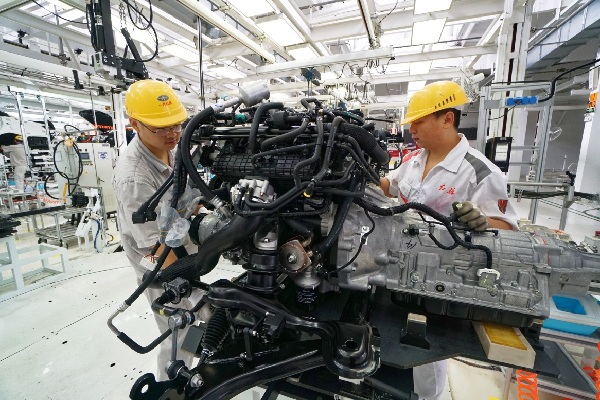Concerted efforts spur nation's economic advances
By Xin Zhiming | China Daily | Updated: 2019-10-16 09:23

Unlike some countries, China has opted not to totally replace the government's role in resource allocation with that of the market. Instead, it has adopted a mixed system in accordance with its own conditions to reduce opposition to reform while ensuring high, market-driven growth.
Justin Yifu Lin, the former World Bank chief economist, said China's way of dealing with reform was a "pragmatic approach".
"The result achieved transition without tears," he said. "It was based on the government's recognition that big-bang reforms could be self-defeating. It was necessary to let private enterprises prosper wherever feasible, but to continue to support important State-owned enterprises while reforming them gradually."
In a speech in 2011, Lin recalled that around 1990, when the Chinese economy had been steaming ahead at an annual growth rate of 9 percent for 10 years, many scholars did not believe such momentum could be sustained for much longer.
But the country continued to grow at a similar pace for another three decades, with its average GDP expansion rate hitting 9.4 percent from 1978 to last year, the fastest in the world.
Cai, from CASS, said China's experiences in reform and opening-up and development, and its constructive suggestions for global development-oriented rule-setting and governance constituted "a contribution of public good to the world".
"China does not seek hegemony, nor does it export its development model, but its development, wisdom and plan are very important for the world," he said.
The Belt and Road Initiative, proposed by China in 2013 to enhance regional connectivity among many countries and regions through both overland and sea routes, is a telling example of how the country's "wisdom and plan" contribute to the world.
Thanks to efforts by China and other countries involved in the initiative, the BRI has strengthened economic cooperation in participating economies, helping them increase infrastructure investment.
Zhang Hui, deputy dean of the School of Economics at Peking University, said, "The Belt and Road Initiative can effectively promote the transfer of industries among countries with different industrialization levels to promote complementary industrial and trade development."
He said the initiative will not only promote industrial productivity in those countries, but help them strengthen their "soft power", such as technology, managerial knowhow and standards.
"The BRI idea comes from China, but the results benefit the whole world," Zhang said.
























